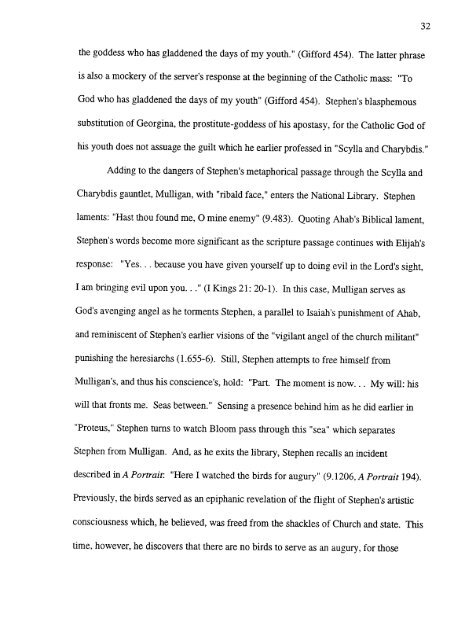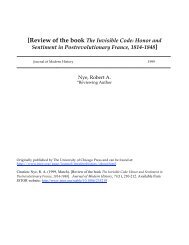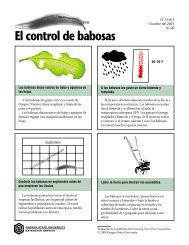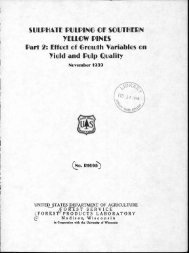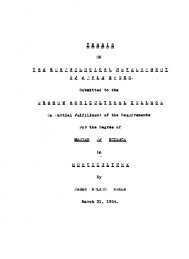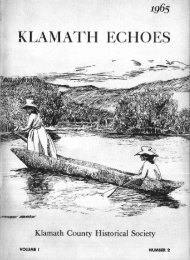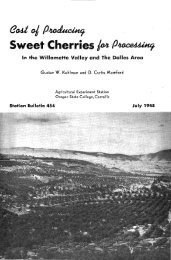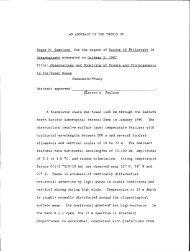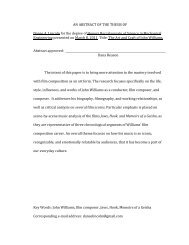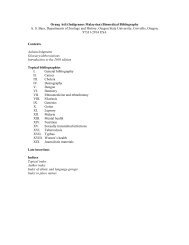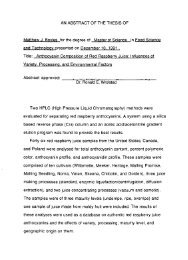Faubourg Saint Patrice - ScholarsArchive at Oregon State University
Faubourg Saint Patrice - ScholarsArchive at Oregon State University
Faubourg Saint Patrice - ScholarsArchive at Oregon State University
Create successful ePaper yourself
Turn your PDF publications into a flip-book with our unique Google optimized e-Paper software.
the goddess who has gladdened the days ofmy youth." (Gifford 454). The l<strong>at</strong>ter phrase<br />
is also a mockery of the server's response <strong>at</strong> the beginning of the C<strong>at</strong>holic mass: "To<br />
God who has gladdened the days of my youth" (Gifford 454). Stephen's blasphemous<br />
substitution of Georgina, the prostitute-goddess of his apostasy, for the C<strong>at</strong>holic God of<br />
his youth does not assuage the guilt which he earlier professed in "Scylla and Charybdis."<br />
Adding to the dangers of Stephen's metaphorical passage through the Scylla and<br />
Charybdis gauntlet, Mulligan, with "ribald face," enters the N<strong>at</strong>ional Library. Stephen<br />
laments: "Hast thou found me, 0 mine enemy" (9.483). Quoting Ahab's Biblical lament,<br />
Stephen's words become more significant as the scripture passage continues with Elijah's<br />
response: "Yes... because you have given yourself up to doing evil in the Lord's sight,<br />
I am bringing evil upon you. . ." (I Kings 21: 20-1). In this case, Mulligan serves as<br />
God's avenging angel as he torments Stephen, a parallel to Isaiah's punishment of Ahab,<br />
and reminiscent of Stephen's earlier visions of the "vigilant angel of the church militant"<br />
punishing the heresiarchs (1.655-6). Still, Stephen <strong>at</strong>tempts to free himself from<br />
Mulligan's, and thus his conscience's, hold: "Part. The moment is now... My will: his<br />
will th<strong>at</strong> fronts me. Seas between." Sensing a presence behind him as he did earlier in<br />
"Proteus," Stephen turns to w<strong>at</strong>ch Bloom pass through this "sea" which separ<strong>at</strong>es<br />
Stephen from Mulligan. And, as he exits the library, Stephen recalls an incident<br />
described in A Portrait: "Here I w<strong>at</strong>ched the birds for augury" (9.1206, A Portrait 194).<br />
Previously, the birds served as an epiphanic revel<strong>at</strong>ion of the flight of Stephen's artistic<br />
consciousness which, he believed, was freed from the shackles of Church and st<strong>at</strong>e. This<br />
time, however, he discovers th<strong>at</strong> there are no birds to serve as an augury, for those<br />
32


